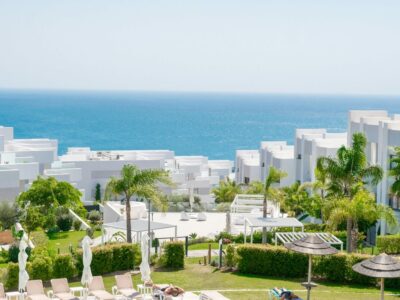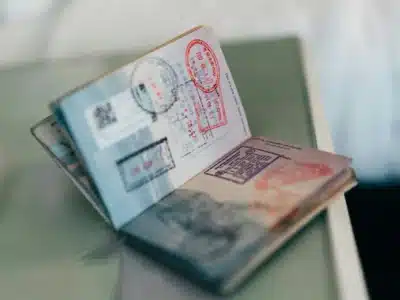
Buying a home in Spain is a dream for many, but understanding the financing side—especially as a non-resident—can feel overwhelming. As a property agent on the Costa del Sol, I regularly help international clients navigate the mortgage process. The good news? Yes, non-residents can get a mortgage in Spain—and with the right support, it’s much easier than it seems.
This guide explains how non-resident mortgages work in Spain, what banks typically require, and how to prepare for a smooth and successful application.
Can Non-Residents Get a Mortgage in Spain?
Who qualifies as a non-resident buyer?
If you spend fewer than 183 days a year in Spain, you’re considered a non-resident for tax purposes. Non-residents from most countries—including the UK, EU, US, and many others—can apply for mortgages from Spanish banks.
What types of properties are eligible?
Non-resident mortgages are usually granted for:
-
Second homes (holiday or investment properties)
-
Off-plan properties with reputable developers
-
Occasionally for rental income purposes, depending on the bank
Overview of banks and mortgage brokers available
Spain has a wide range of lenders offering non-resident mortgages, including Santander, BBVA, CaixaBank, and international mortgage brokers who specialise in foreign buyers. I regularly work with both banks and English-speaking brokers who simplify the entire process for my clients.
Typical Mortgage Conditions for Foreign Buyers
Loan-to-Value ratios and down payment requirements
Most banks will lend 60% to 70% of the property’s purchase price or valuation (whichever is lower). This means you’ll typically need to put down 30–40% as a deposit, plus an additional 10–12% for taxes and fees.
Interest rates and repayment terms (2025 outlook)
As of 2025:
-
Interest rates for non-residents range between 3.5% and 5% (fixed or variable)
-
Maximum term is often 20–25 years
-
Loans usually must be repaid by the time you turn 70–75
(Source: Idealista & MySpanishResidency, myspanishresidency.com)
Documents you’ll need as a non-resident
Prepare to provide:
-
Your passport and NIE (foreigner ID number)
-
Proof of income (payslips, tax returns, employment contract)
-
Bank statements (3–6 months)
-
Details of other assets or liabilities
-
Property reservation or purchase agreement
The Mortgage Application Process in Spain
Step-by-step timeline: from enquiry to notary
-
Initial assessment and budget discussion
-
Pre-approval from bank or broker (optional but helpful)
-
Property selection and reservation contract
-
Submission of documents and full application
-
Valuation and risk analysis by the bank
-
Approval and offer issued (binding for 10 days minimum)
-
Signing of mortgage and purchase deeds at the notary
From start to finish, this process takes 4 to 8 weeks, depending on the complexity and lender.
Can you apply without choosing a property?
Yes, many banks offer pre-qualification based on your income and financial profile. This gives you a realistic budget before you start viewing homes—a step I always recommend to my international clients.
My Experience Helping International Clients
What I tell buyers before approaching a bank
“When helping non-resident clients, one of the first things we discuss is financing. Knowing what you can borrow before falling in love with a property saves a lot of stress.”
I’ve seen buyers fall for a villa only to discover their financing falls short. A clear financial picture early on avoids disappointment.
Common mistakes and how to avoid them
Some buyers assume foreign income is enough—but it must be demonstrable and stable. Others underestimate costs like property taxes, insurance, and notary fees. I walk my clients through a full budget breakdown so there are no surprises.
Why having local support changes everything
Navigating Spanish paperwork isn’t always easy—but that’s where I come in. I connect clients with bilingual mortgage brokers, assist with appointments, explain documents clearly, and follow up every step of the way until the keys are in your hands.
Final Advice for Stress-Free Financing
Should you use a mortgage broker or go direct?
If you’re a confident negotiator and fluent in Spanish, going direct is possible. But for most international buyers, brokers provide value by comparing offers, handling paperwork, and getting quicker approvals.
English-speaking banks and legal contacts
I regularly work with professionals who understand UK, US, and EU financial profiles, making communication smoother and expectations clearer. This makes a huge difference in closing timelines.
Preparing your finances in advance
Ideally, have:
-
Your NIE number
-
A Spanish or EU bank account
-
Your deposit funds ready
-
Recent financial documents translated if needed
Being prepared speeds everything up and improves your loan terms.
Looking for a Home to Finance in Southern Spain?
If you’re exploring homeownership in the Costa del Sol and want a seamless buying experience, browse our selection of property for sale in Duquesa. Whether it’s a holiday retreat or smart investment, I’ll help you finance it with clarity and confidence.




